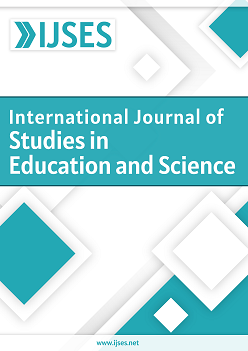Developing Probabilistic Reasoning in Preservice Teachers: Comparing the Learner-Centered and Teacher-Centered Approaches of Teaching
DOI:
https://doi.org/10.46328/ijses.35Keywords:
Probabilistic reasoning, Constructivism, Teacher-centered approach, Misconceptions, Preservice teachers, College of educationAbstract
Many studies have examined the learner-centered and teacher-centered approaches of teaching, but none seems to have compared the two approaches in developing preservice teachers’ probabilistic reasoning by targeting probability misconceptions. This paper calls for assessment of the two teaching methods based on recent findings and new methodologies. This study, therefore, examined preservice teachers’ probabilistic reasoning by comparing the learner-centered and teacher-centered approaches of teaching probability targeted at addressing probabilistic misconceptions. In this quasi-experimental research, 59 preservice teachers comprising 32 in Group A and 27 in Group B were used. The results showed that learner-centered approach had a statistically significant positive effect on preservice teachers’ probabilistic reasoning [F (1, 56) = 114.955; p = .000 < .05]. This means that the learner-centered approach was more effective than the teacher-centered approach in developing preservice teachers’ probabilistic reasoning. Thus, it was recommended that the learner-centered approach of teaching directed at addressing misconceptions be used to develop probabilistic reasoning in preservice teachers to help improve their problem-solving ability in probability.References
Hokor, E. K. & Sedofia, J. (2021). Developing probabilistic reasoning in preservice teachers: Comparing the learner-centered and teacher-centered approaches of teaching. International Journal of Studies in Education and Science (IJSES), 2(2), 120-145.
Downloads
Additional Files
Published
Issue
Section
License
Articles may be used for research, teaching, and private study purposes. Authors alone are responsible for the contents of their articles. The journal owns the copyright of the articles. The publisher shall not be liable for any loss, actions, claims, proceedings, demand, or costs or damages whatsoever or howsoever caused arising directly or indirectly in connection with or arising out of the use of the research material.
The author(s) of a manuscript agree that if the manuscript is accepted for publication in the International Journal of Studies in Education and Science (IJSES), the published article will be copyrighted using a Creative Commons “Attribution 4.0 International” license. This license allows others to freely copy, distribute, and display the copyrighted work, and derivative works based upon it, under certain specified conditions.
Authors are responsible for obtaining written permission to include any images or artwork for which they do not hold copyright in their articles, or to adapt any such images or artwork for inclusion in their articles. The copyright holder must be made explicitly aware that the image(s) or artwork will be made freely available online as part of the article under a Creative Commons “Attribution 4.0 International” license.

This work is licensed under a Creative Commons Attribution-NonCommercial-ShareAlike 4.0 International License.





